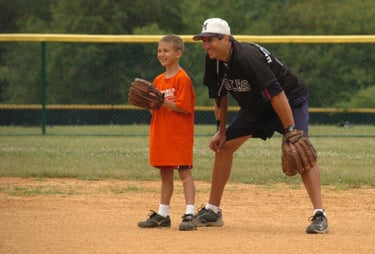It’s halfway through the middle school wrestling match. On one side of the mat, the coach is sitting with laser focus, watching his player move. He’s shouting out words of support, “Good job!” and giving detailed directions, “Get your leg up” over the cheers of the team. And, then there’s the other side.
The other team’s coach is shouting too. But, he’s not giving words of support or even helpful directions. With a pained face, he’s whaling, “Oh come on! Really? Take him. Do better!” When his player gets pinned he throws his hands up in exasperation, turns his back, and walks away. As he shakes his head one of the parents joins in with an audible, “That was terrible!”
This is a true story and one that illustrates two coaching styles. The first is positive, insightful, and focused on helping the young athlete to perform at his best. The second, not so much. The second coach wants his player to win (what coach doesn’t?), but at any cost. Does this help the player? Does this turn a child into an athlete? Beyond the shame and hurt that the player may feel, this type of aggressive coaching cultivates a culture that is far from motivational.
According to Positive Coaching Alliance, coaches should use positive reinforcement and constructive criticism. This doesn’t mean that the coach needs to tell your child that he’s “the best” when he’s not or hand him a trophy just because he walks out onto the field and stands there. Instead, the coach is responsible for helping young athletes learn the game and develop skills.
If you’re wondering what your child’s coach can do to help him succeed, youth coaches should:
- Understand what’s appropriate for your child’s age and developmental level. A 5-year-old can’t physically perform in the same way that a 12-year-old can. Your child’s coach should never expect him to play the game in a way that’s out of his age range.
- Provide instruction. Your child needs to know the rules of the game, the vocabulary, and what he’s supposed to do before he hits the field.
- Acknowledge that players have different skill levels and different amounts of knowledge. Some kids start playing a sport in preschool, while others wait until much later. A coach shouldn’t assume that every older child, tween, or teen is well versed in a sport just because of his age.
- Give genuine, truthful feedback. This doesn’t mean that the coach needs to be brutally honest. Instead, the coach shouldn’t tell your child that he’s a perfect player when he’s not. When your child does a great job the coach should let him know. But, if your child isn’t trying or is making mistakes, the coach should constructively correct him.
- Model good sportsmanship. Coaching is a leadership role. Your child’s coach should demonstrate good sportsmanship practices at all times.
Coaching isn’t an easy job. Your child’s coach is his teacher, cheerleader, and often a support system. If you feel that the coach isn’t acting in an acceptable way, is negative more often than not or is constantly criticizing in ways that are far from constructive, talk to him. While you don’t want to tell the coach how to do his job, you also don’t want one bad experience to turn your child off from sports. If your child voices his upset or anger at the situation, have an honest discussion. Let your child know that you want to help him succeed and that you believe in him no matter what.











.png)
.png)
.png)
.png)